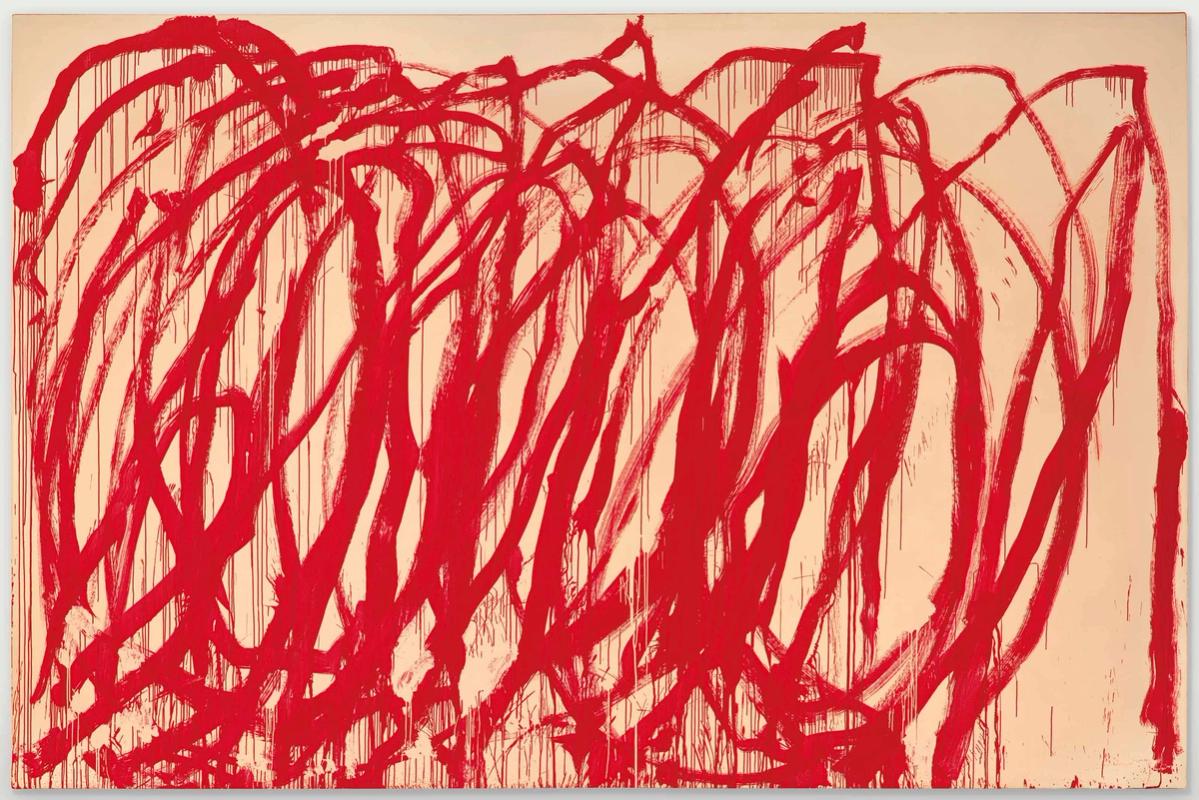Cy Twombly's Bacchus series, created between 2003 and 2005, represents one of the artist's most powerful bodies of work, culminating his fifty-year practice in painting. The series, exhibited at Gagosian in November and December of 2005, consists of eight monumental paintings and one sculpture. These works are characterized by their fleshy grounds that are dramatically activated with large, dripping loops of red oil paint, recalling the gestural force of Twombly's Blackboard paintings from the 1960s. This continuation of his exploration into myth and history is evident in these paintings as they delve into universal truths and the dual nature of Bacchus, the God of wine, pleasure, and festivities (Gagosian).
The full title of the exhibition, Bacchus: Psilax and Mainomenos, signifies the contrasting aspects of Bacchus's character. "Psilax" suggests an uplifting, lightening effect on the human spirit, akin to Bacchus's capacity to inspire joy and abandon. Conversely, "Mainomenos" refers to the god's more frenzied, chaotic aspect, embodying Dionysian fury and intoxication. These dualities are powerfully expressed through the dynamic and vigorous red swirls across the canvases, embodying both the euphoria and the madness associated with Bacchus (Gagosian).
One particular piece from this series, Untitled (Bacchus) from 2008, further exemplifies Twombly's abstract expressionism and his masterful use of acrylic on a grand canvas, measuring over three by four meters. This piece, like others in the series, features bold gestural strokes and a monochromatic scheme punctuated by vibrant reds, encapsulating the thematic essence of the series. The Bacchus series as a whole not only showcases Twombly's enduring fascination with classical mythology but also highlights his unique ability to convey profound emotion and narrative through abstract forms (Tate Gallery).
The Bacchus series stands as a testament to Twombly's innovative approach to painting and his continuous pursuit of blending historical narrative with abstract expressionism. Through these works, Twombly invites the viewer to experience the dichotomy of human experience — joy and despair, creation and destruction, life and death — all under the aegis of Bacchus's dual nature.

